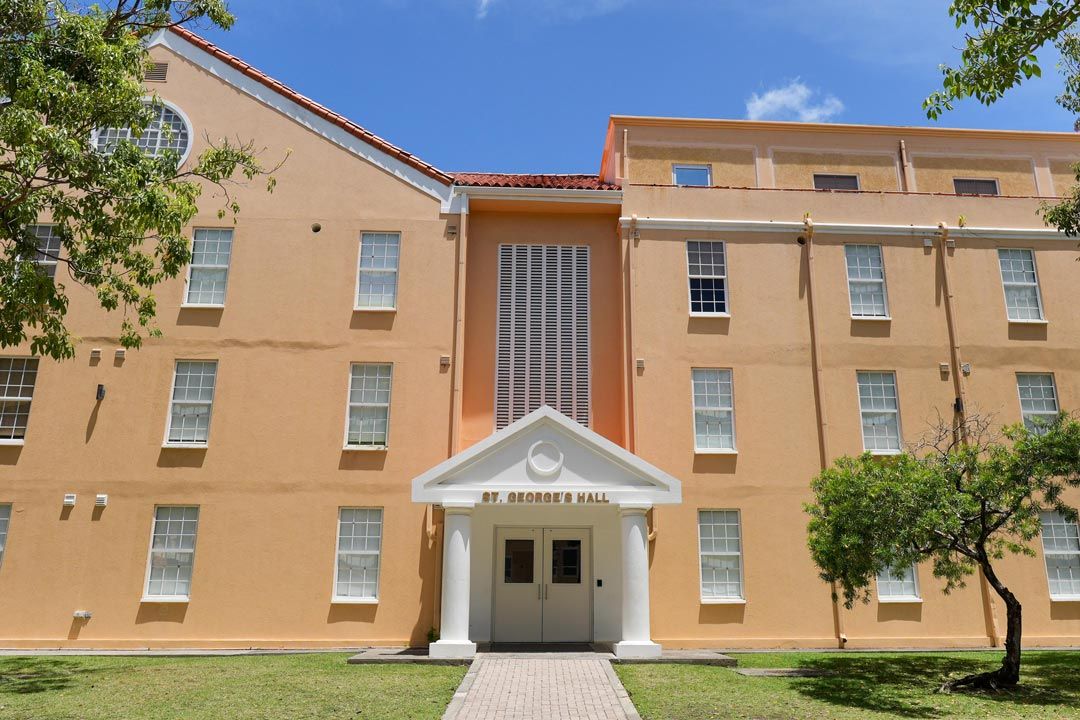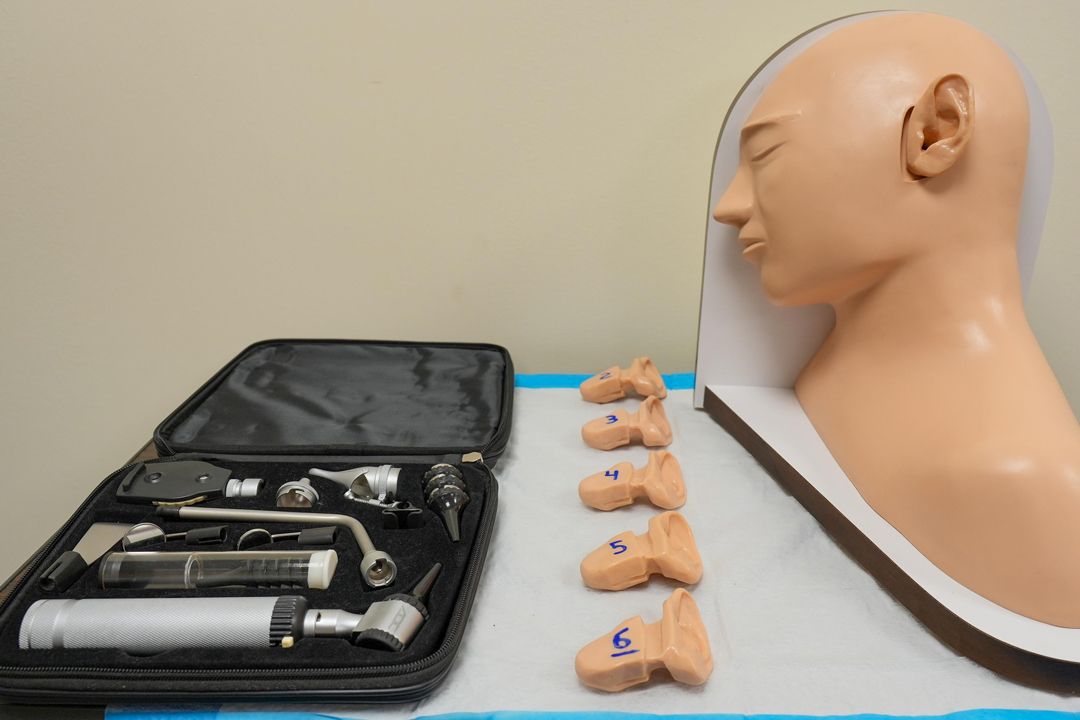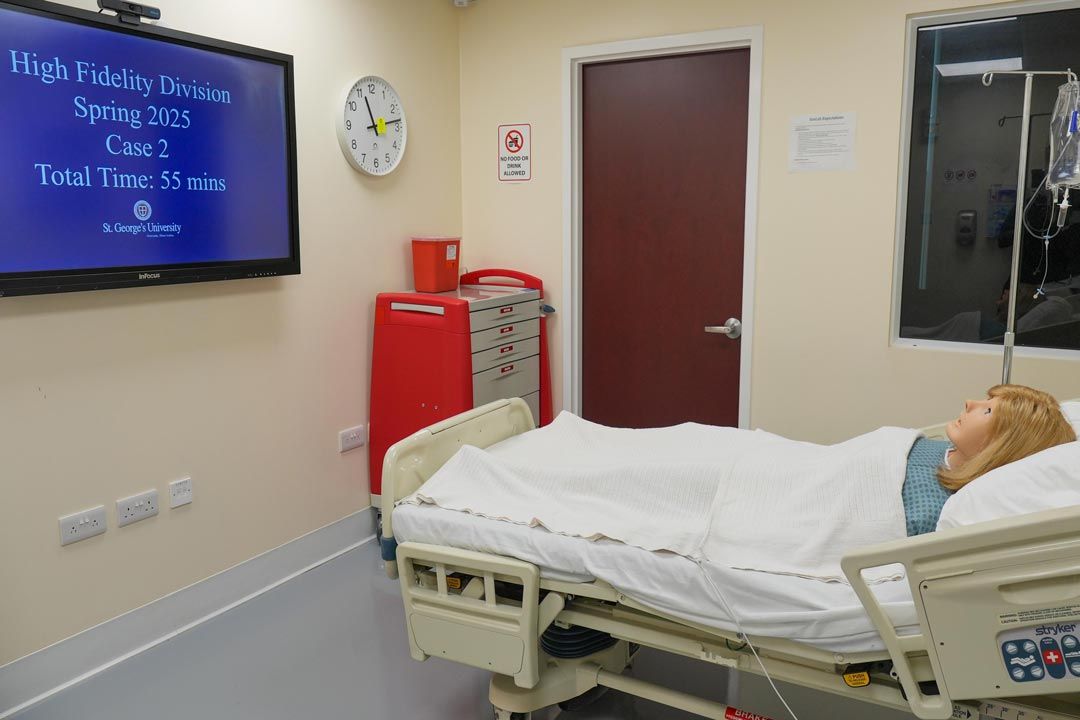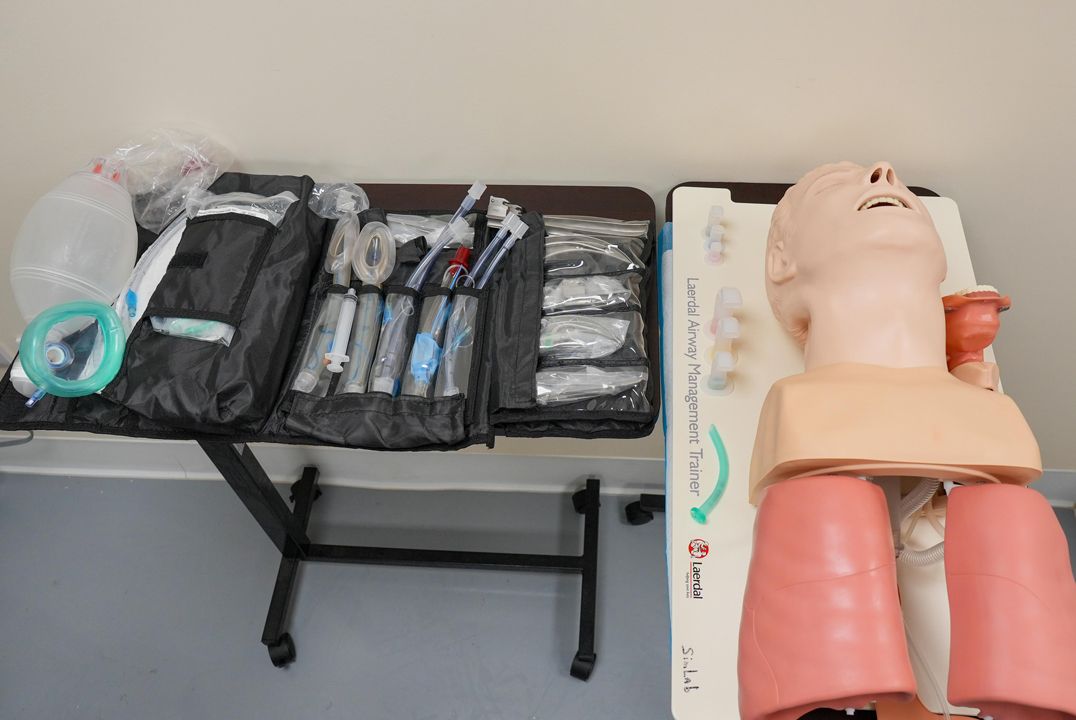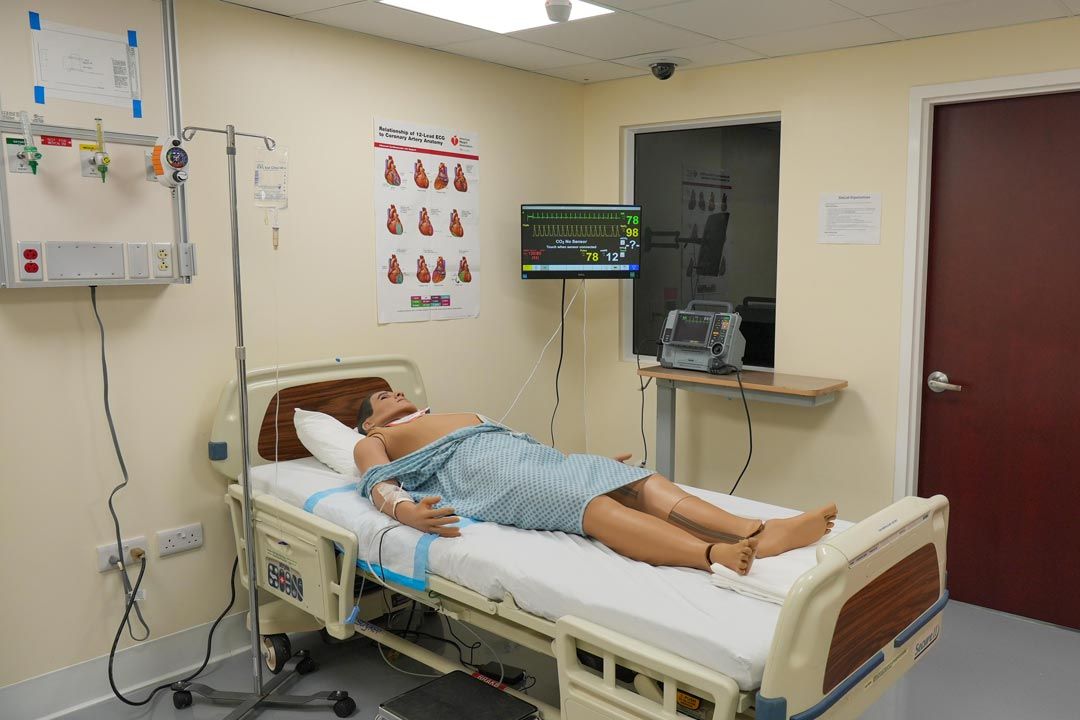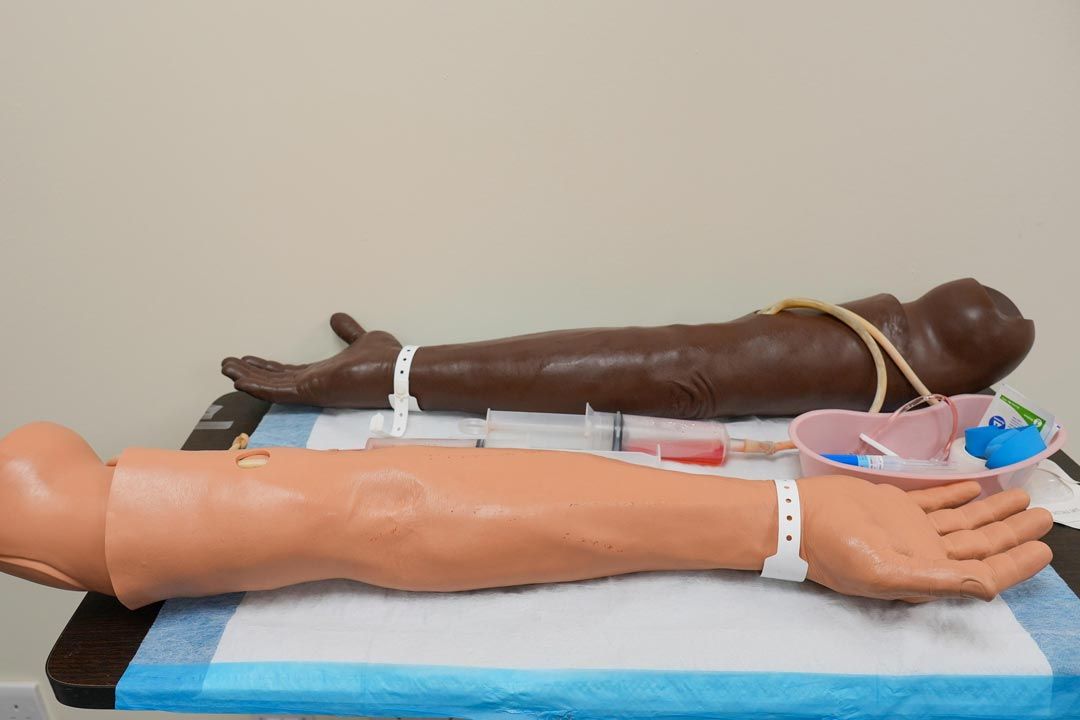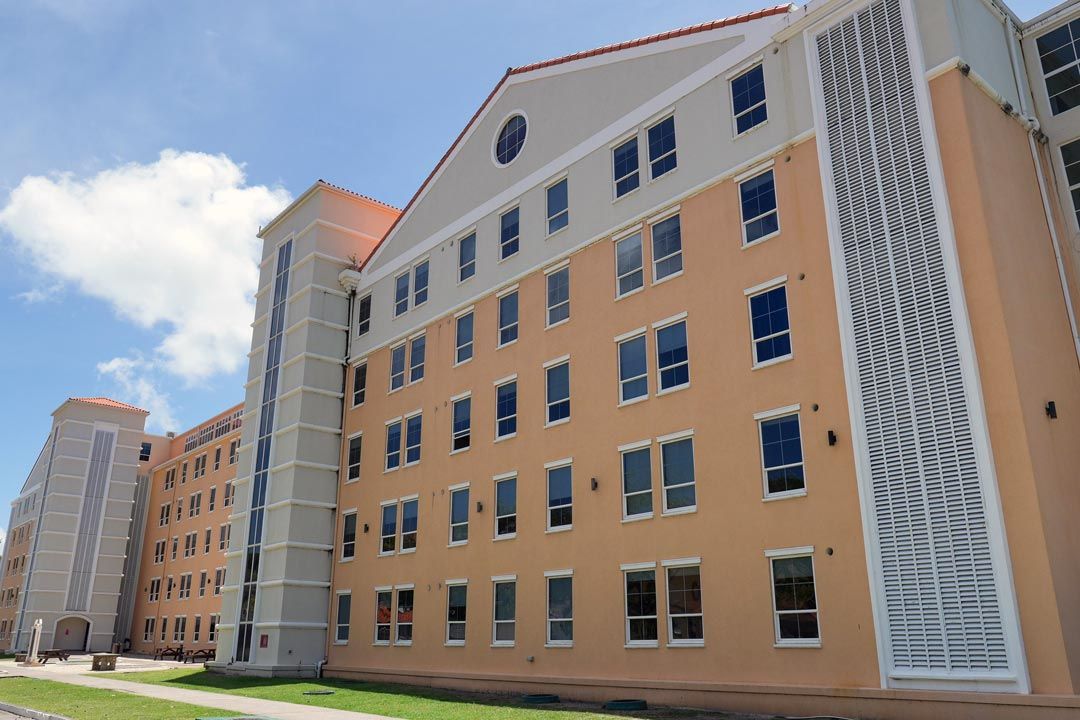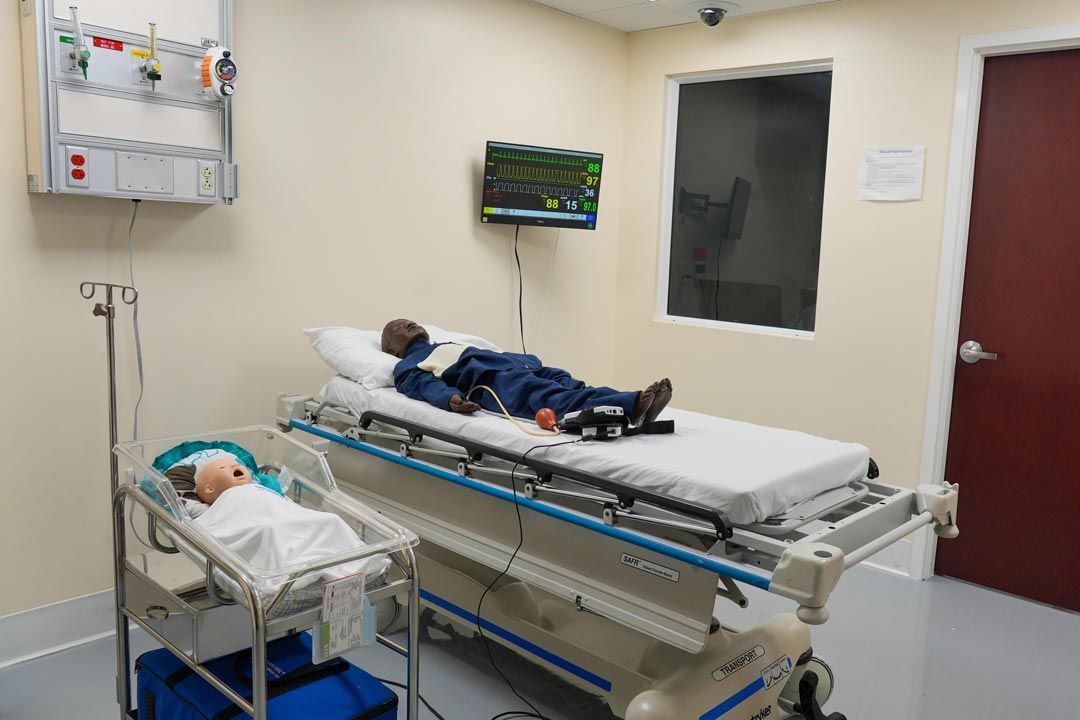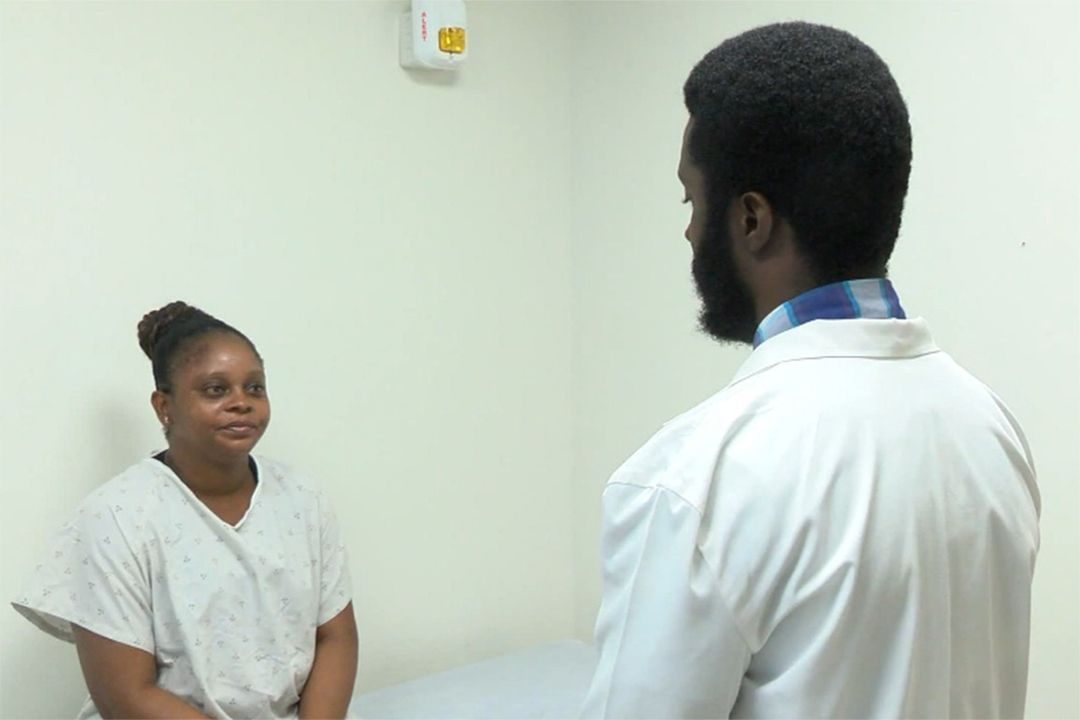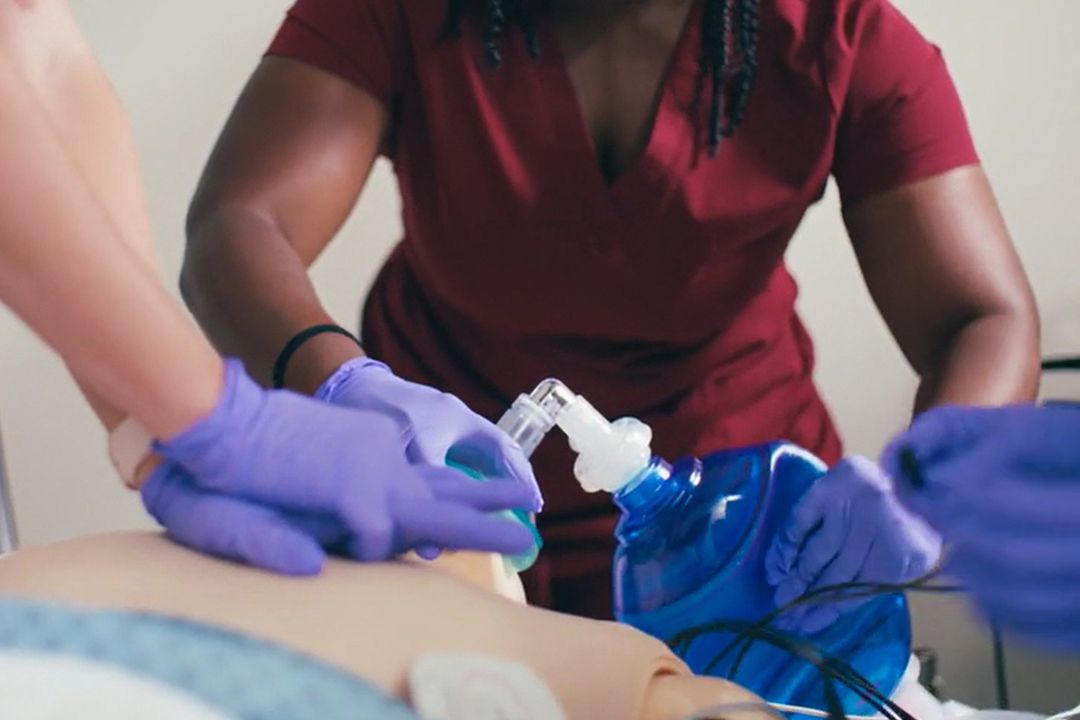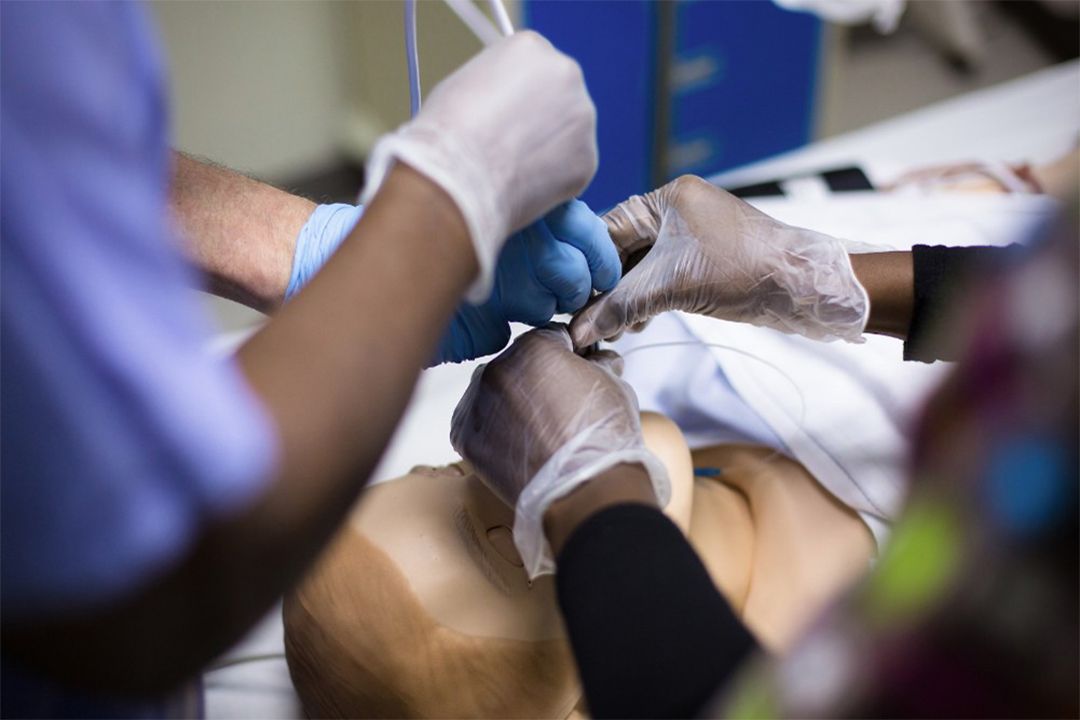
Experience the SGU Simulation Center
Bridging the Gap Between Knowledge and Practice
At St. George’s University School of Medicine, learning goes far beyond the classroom. Our state-of-the-art Simulation Center (SimC) offers a dynamic, hands-on training environment where medical students gain the confidence and clinical skills needed to care for real patients — all before entering the hospital setting.
Mission Statement
The mission of St. George’s University School of Medicine Simulation Center (SGUSOM SimC) is to establish educational benchmarks, enhance clinical reasoning, improve procedural skills, and enhance patient safety through innovative medical simulation methodologies. Our commitment extends to cultivating the next generation of healthcare leaders, fostering interprofessional collaboration, inspiring research initiatives, and ultimately improving patient care outcomes.
Vision Statement
St. George’s University School of Medicine Simulation Center (SGUSOM SimC) is committed to improving patient care outcomes through the operation of an internationally accredited facility. We strive to excel as the premier regional simulation center, advancing medical education and fostering the development of skilled, compassionate, and ethically-driven healthcare professionals committed to achieving excellence in patient care.
Values
- Learner-Centric
- Culture of inclusivity and fairness
- Commitment to excellence
- Accountability
- Honesty and transparency
- Respect
- Collaborative
- Reciprocity
- Continuous improvement
- Evidence-Based
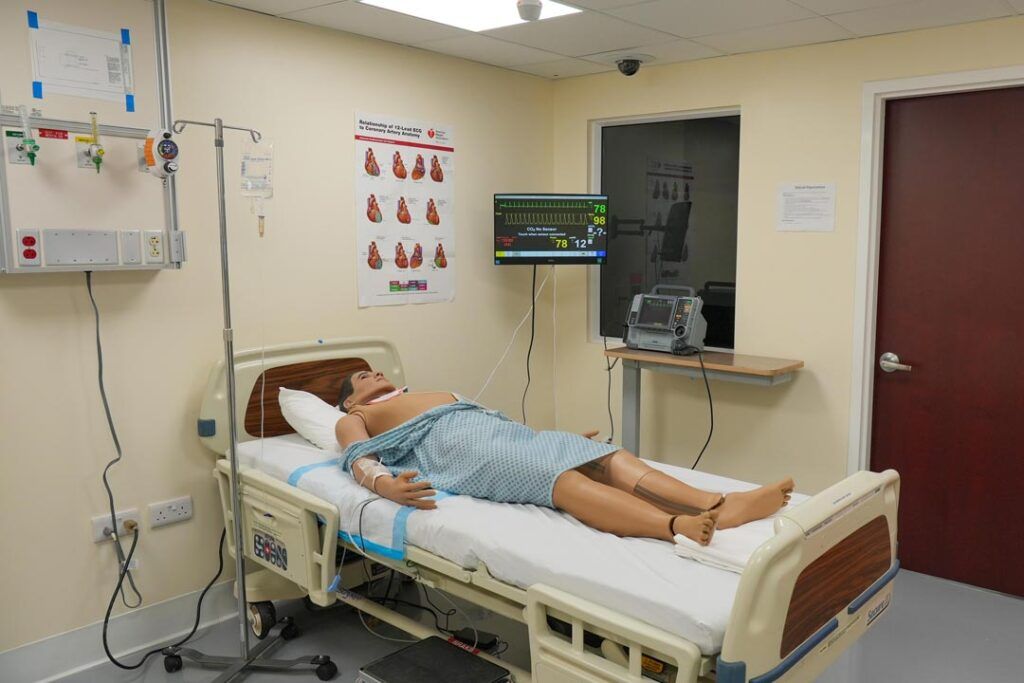
What is the Simulation Center?
The SGU Simulation Center is an immersive educational facility that mirrors real-world clinical environments, from emergency rooms and intensive care units to outpatient clinics and labor and delivery suites. It is designed to give students critical exposure to patient care scenarios using:
- High-fidelity patient simulators that breathe, bleed, and respond to treatment.
- Standardized patients (SPs) — trained actors who portray realistic clinical cases.
- Task trainers and procedural models for practicing essential skills like suturing, intubation, and IV placement.
- Advanced audiovisual feedback systems to guide learning and support post-scenario debriefing.
Learning in Action
Simulation at SGU is fully integrated into the medical school curriculum from the very beginning. Students engage in simulation-based training to:
- Strengthen clinical reasoning and decision-making skills.
- Practice technical procedures in a safe, controlled environment.
- Develop communication and teamwork — key components of patient-centered care.
- Apply foundational knowledge to real-world medical scenarios.
These experiences help prepare students to meet core competencies aligned with ACGME guidelines and to excel in clinical rotations and beyond.
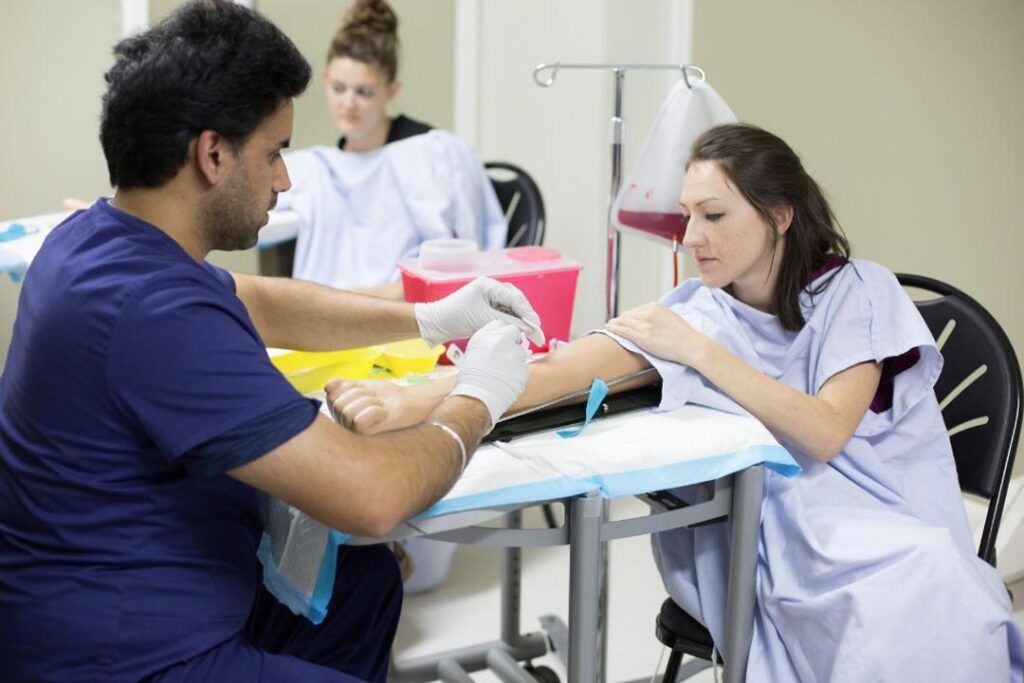
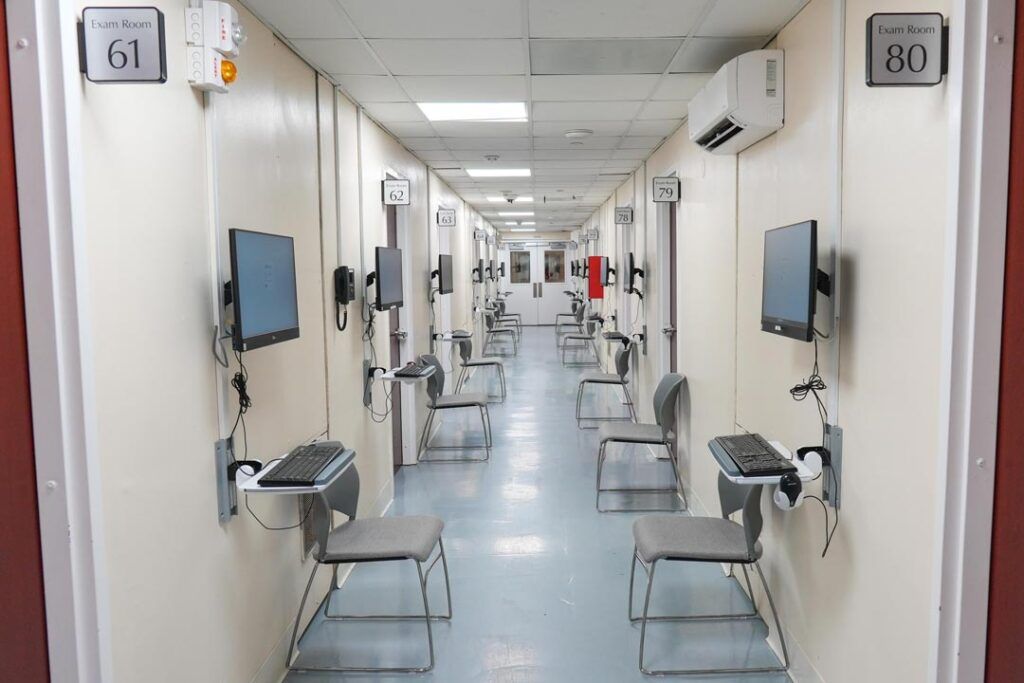
Facilities That Empower Learning
Our Simulation Center includes:
- 84 Clinical Skills Lab rooms — each equipped with medical props, exam tables, and digital capture tools for skills practice and evaluation.
- 22 High-Fidelity Simulation Bays — modeled after real hospital settings with full crash carts, surgical equipment, and instructor control panels.
- Instructor Control Room — where faculty guide scenarios and provide immediate feedback.
- Dedicated spaces for debriefing, interprofessional collaboration, and faculty development.
We also offer AHA-certified BLS, ACLS, and PALS courses on-site.
Simulation with Purpose
At SGU, simulation is more than a teaching tool — it’s a philosophy of learning grounded in:
Safety
Physical and psychological safety are built into every session.
Realism
Scenarios are designed to reflect diverse patient populations and clinical situations.
Respect
Simulated patients are treated as real, and every interaction is an opportunity to grow.
Confidentiality
All participants agree to uphold privacy and professionalism during sessions.
See Yourself at SGU
Whether you’re practicing your first physical exam or responding to a life-or-death emergency, the Simulation Center provides the support and structure to help you become a competent, compassionate physician.
From Dr.eam To Doctor
Learn more about our MD program and tracks
Every aspect of our MD program and tracks are intentionally designed to support you on your path to becoming a physician.
Flexible Start Dates: Choose from multiple entry terms in April, August, or January to begin your medical education at your convenience.
Average of 2020, 2021, 2022, 2023 and 2024 residency placement rates. Residency placement rate is defined as the total number of students/ graduates who obtained a US residency divided by the total number of students / graduates who applied to a US residency program in a given year as of October 2024.
Program and Track Highlights
- Global Recognition: SGU’s School of Medicine has been continuously accredited for decades, enabling our students to be eligible to practice in the US.
- Clinical Training: 85+ hospitals and health systems in the United States, Canada, and the United Kingdom offer clinical and ambulatory training and support
- Legacy of Excellence: Join the network of over 25,000 graduates* who have impacted healthcare worldwide.
*Based on the number of students who have completed the Doctor of Medicine program from 1981-2025.

Connect With Us.
- Learn more about our MD program and tracks
- Receive priority invitations to our prospective student events
Fill out my online form.
We will be in touch soon, but if you have questions now, email us at admissions@sgu.edu

